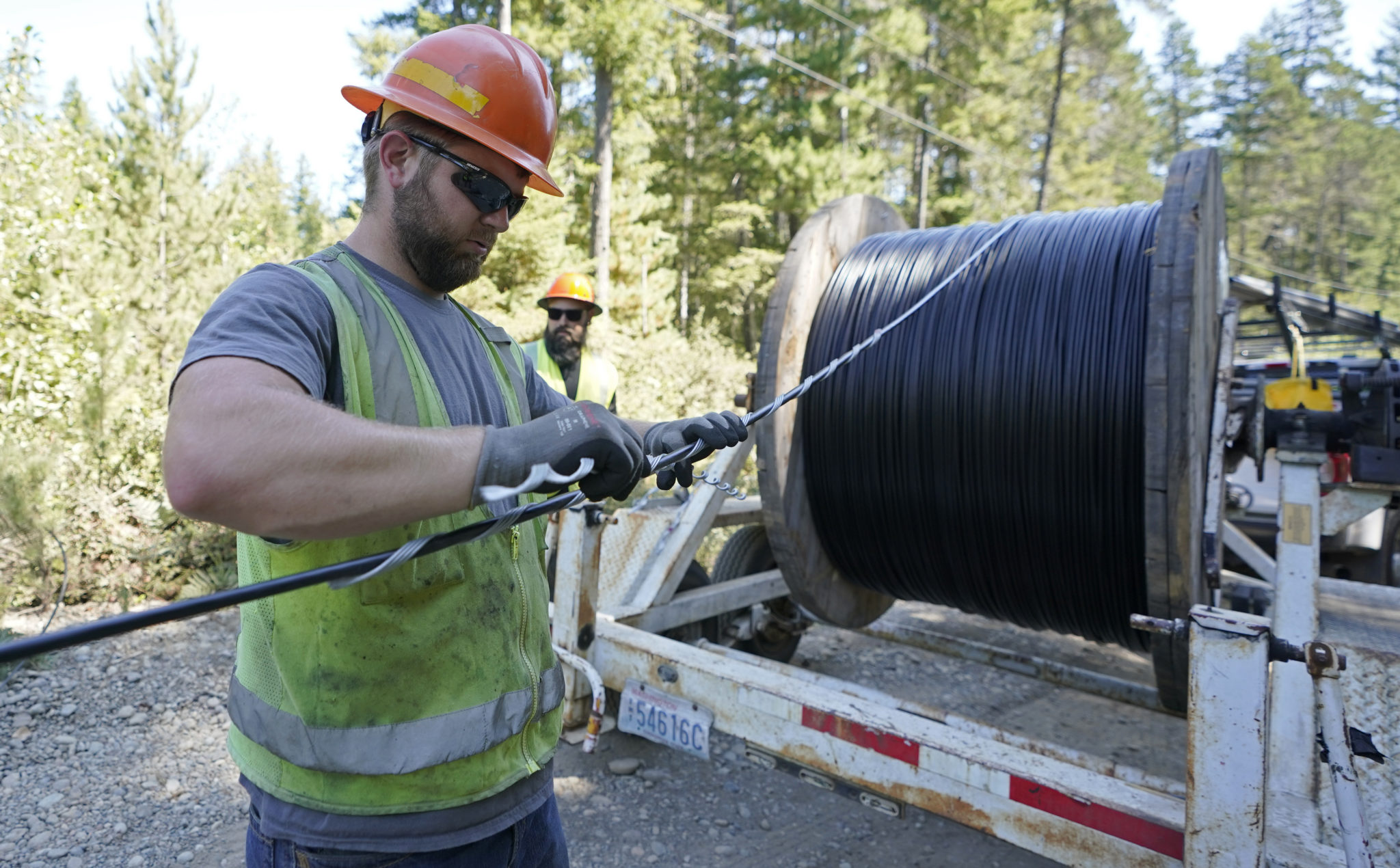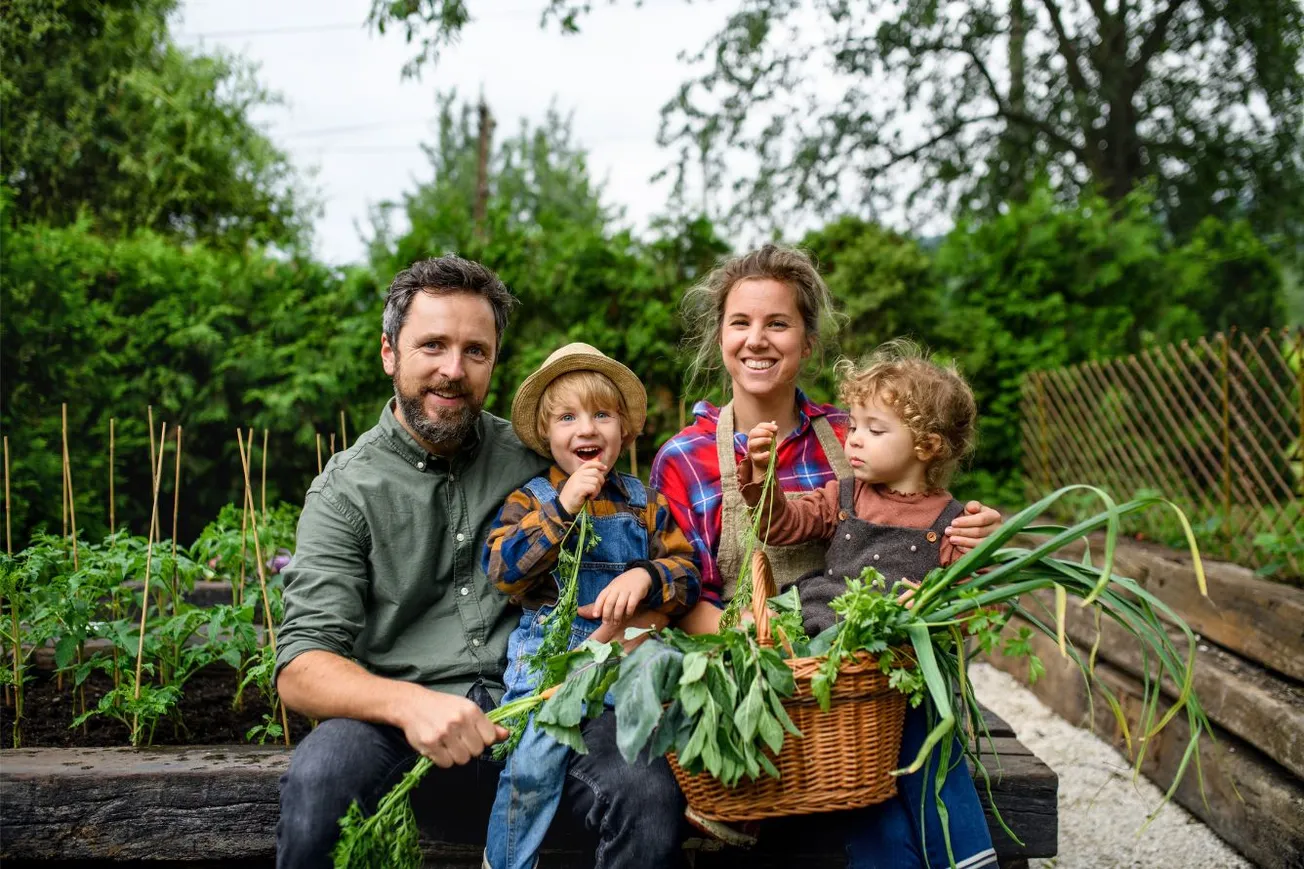Do Democrats have a shot at winning over reliably Republican rural voters by convincing them to focus on kitchen table economic issues and not hot button social issues like abortion and guns?
Opportunity awaits, according to Kentucky Gov. Andy Beshear, who has won two terms in a largely rural state where the GOP mostly rules the political roost.
Reelected last year, Beshear ran as a pro-choice and pro-LGBTQ rights Democrat. But he hit hard on his economic record. “Kentucky’s economy is open for business!” he posted on X from the campaign trail. “Since I took office, we’ve created 57,000 new jobs across the Commonwealth, become the electric vehicle capital of the country, and had the best 2-year period of economic growth in state history. And we’re not slowing down any time soon.”
Speaking at a Rural Council meeting during the Democratic National Convention, Beshear “urged the group of rural Democrats to reject social issues and a left-right ideological framing,” wrote Jacob Fischler in the online Kentucky Lantern. “Most voters, he said, were not worried about political labels, but about jobs, health care, transportation, school quality, and safety.”
Added Fischler: “The Republicans dominating rural districts and states, Beshear and other speakers said, were not delivering on those issues.”
Not just Democratic politicians and party activists agree that the GOP is short-shrifting rural voters. “On issue after issue, rural Americans are getting not nearly enough, or nothing at all, from the Republicans they elect to represent them,” political scientist Tom Schaller and journalist Paul Waldman wrote in Washington Monthly last February. “More than that, they are often actively harmed by the party’s policy positions and ideological commitments.”
Their essay was headlined “How to End Republican Exploitation of Rural America.” It’s a worthwhile read, especially for Democrats seeking to win hearts and minds in rural Republican territory like most of Kentucky. In 2016 and 2020, Donald Trump carried every Bluegrass State county except Jefferson (Louisville) and Fayette (Lexington).

Co-authors of the book, White Rural Rage: The Threat to American Democracy, Schaller and Waldman pointed out that “Republicans press for school vouchers that take money away from public schools and direct it to private schools, but in many rural areas, there simply are no private schools; if the local public schools are starved for resources, the whole community suffers. The GOP is the party of climate denial, yet farmers are more affected by climate change than almost anyone else, from peach farmers in Georgia to hay farmers in upstate New York, seeing their crops devastated by warming temperatures and weather disasters.”
This fall, Kentucky voters will decide on a Republican-backed constitutional amendment to permit public funds to be spent on private schools. Beshear and the Democrats oppose the measure, which would open the door for vouchers.
“Everywhere you look, Republican ideological goals are having their intended effects in rural America, which winds up making life worse,” Schaller and Waldman also wrote. “In 2017, a pair of researchers examined rural counties to determine where upward mobility was most common—in other words, where economic opportunity existed and the American Dream was more of a reality. In the end, they identified three factors that would have the greatest effect in promoting mobility in rural America: strong schools, good broadband, and the availability of family planning so women were less likely to have unwanted pregnancies before they’re economically ready to have children.
“None of that should come as a surprise. Yet, in all three cases, the party that dominates rural America is directly undermining its ability to create upward mobility. Republicans denigrate and defund public schools. They actively work to prevent municipalities from setting up their own broadband systems. And they undermine family planning at every turn, from promoting counterproductive ‘abstinence only’ education, to filing lawsuits to prevent people from getting contraceptives covered by insurance, to outlawing abortion everywhere they can.”
But here’s where the road gets steeper and rockier for Democrats in rural America, which is overwhelmingly white and is the heartland of conservative Protestant evangelical religion. Among most evangelicals, the hereafter, not the here-and-now, is what counts. “They believe that actions on earth have nothing to do with the afterlife: ‘I’m saved and so I’m good to go,’” explained a white Baptist friend of mine. “One Baptist preacher called it ‘their fire insurance policy.’”
He proposed that Beshear and like-minded Democrats shouldn’t just stress pocketbook issues. They should preach a modern version of the old-time Social Gospel, a reformist, mostly Protestant theology that called for applying Christian ethics to earthly injustices.
“Basically, Beshear showed the path during his campaign when he talked about his faith teaching him that we are to love our neighbors,” said my friend. “You can talk about community and taking care of one another.” That, he added, “was a common theme that ran through the whole Democratic National Convention.”
Rural counties like mine which went for Trump by more than 80 percent both times might not seem like a fertile mission field for Democratic evangelizing. But Schaller and Waldman offer some solid suggestions on how rural Americans can stop the GOP from suckering them.
First, they admit, it’s “not as simple as convincing them that they should all vote for Democrats (though some of them surely should). For many, the positions of the Democratic Party on issues such as abortion and LGBTQ+ rights will always be unacceptable. What those rural, White voters need to do is not to vote Democratic, but to get themselves better Republicans.”
Democrats — maybe including Beshear and the convention’s Rural Caucus — might balk at that idea which the Germans call realpolitik, the politics of reality.
Second, Schaller and Waldman said a one-size-fits-all approach to boosting rural economies is impractical. “But more than anything else, breaking the dangerous cycle in which rural misery leads to anti-democratic revanchism will require a new rural political movement. If they created a movement, rural Americans — and rural Whites especially — would have an extraordinary opportunity to be courted by both parties. Imagine a future in which rural Americans’ needs and demands were a central component of the national political debate, and both parties labored relentlessly to convince rural voters they had something to offer them. If those voters had clearly defined demands, Republicans would have to satisfy them, and Democrats would want to satisfy them.”
There is precedent for such a rural movement. In the 1890s, small farmers who often couldn’t make ends meet and desperately needed loans were victimized by banks that charged ruinous interest rates and demanded farms as collateral. At the same time, nearly all farm produce moved by rail. Railroads charged exorbitant prices to ship produce and store grain in trackside elevators.
Farmers organized themselves into the short-lived Populist party that denounced monopoly capital, the pro-business conservatism of the Republican and Democratic parties, and demanded help from the federal government.
But any such rural movement is doomed unless rural whites admit that they’ve been blaming the wrong people for their problems. That’s a tall order; none of us like to admit it when we’re wrong. But ‘fessing up is the foundation of a successful movement, Schaller and Waldman insisted.
“Hollywood didn’t kill the family farm and send manufacturing jobs overseas,” they wrote. “College professors didn’t pour mountains of opioids into rural communities. Immigrants didn’t shutter rural hospitals and let rural infrastructure decay. The outsiders and liberals at whom so many rural Whites point their anger are not the ones who have held them back—and as long as they keep believing that they are, rural people won’t develop an effective form of politics.”
Schaller and Waldman declined to advise rural Americans on precisely what they should seek. “There are plenty of ideas out there in think tank reports and economic papers, and there are people in rural areas working hard to fashion a new future. Some have focused on creating a recreation-based economy to replace the old one based on resource extraction. Others have welcomed the immigrants moving into the heartland as an engine of revitalization, rather than fearing and rejecting them. Still others are agitating to resist the predations of corporate consolidation. All of those are worthy efforts.”
Here’s their bottom line: “It’s absolutely crucial that any rural movement be not a White rural movement, but one that includes the interests and voices of all people who live in rural America, including the quarter of them who aren’t White. Black, Latino, and Native rural Americans have their own distinct struggles, but share many of the same problems as rural Whites.”
--30--









